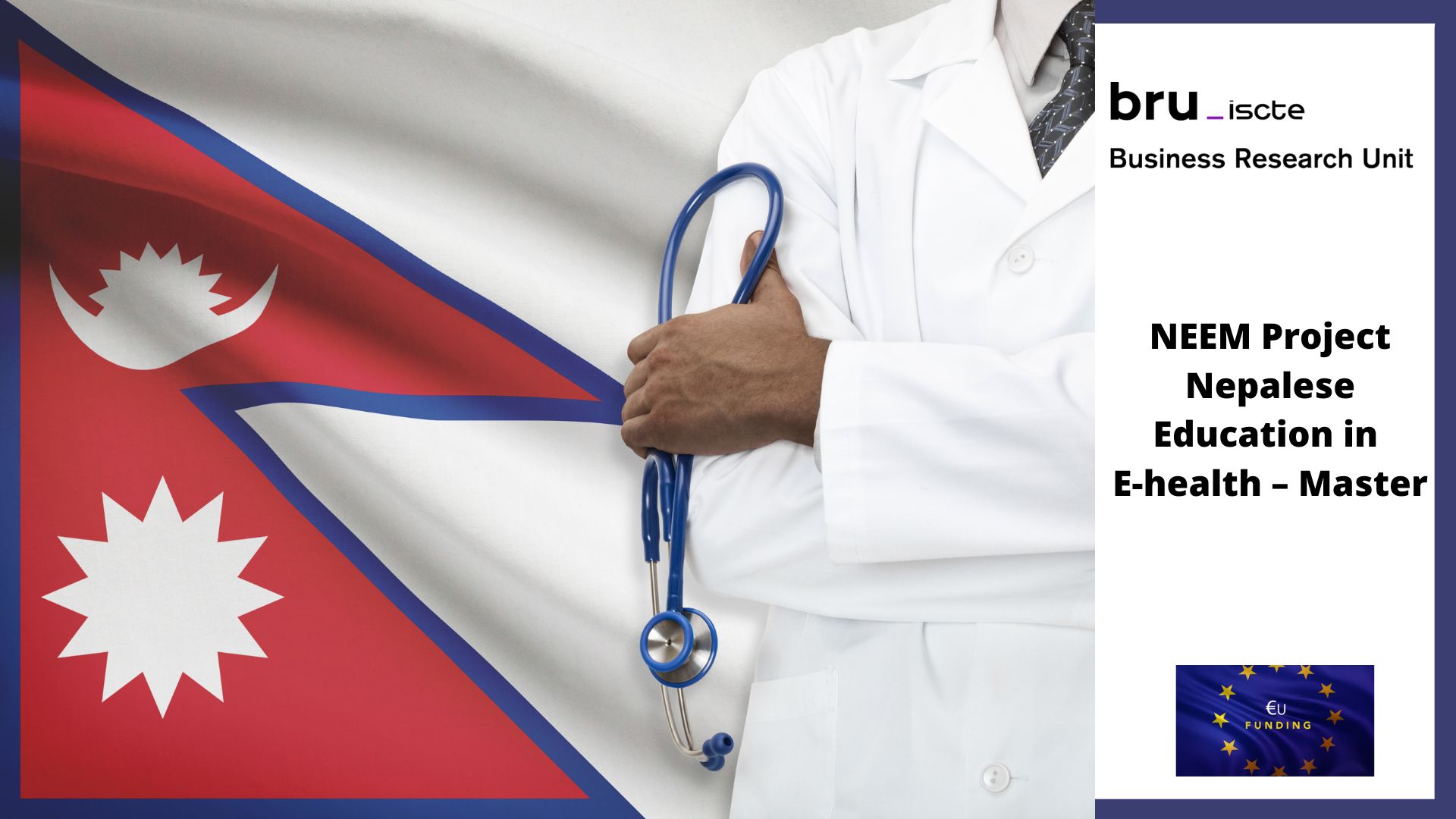“NEEM – Nepalese Education in E-health – Master” is an Erasmus+ Capacity Building project that targets the shortage of specialists in health information systems in Nepal through establishing two master programmes in cooperation with two European Universities – the University of Oslo and Iscte.
This project counts with the involvement of researchers from the Iscte-Health group, with the local coordination being with ISTAR-Iscte researcher, João Carlos Ferreira. BRU-Iscte researchers Ana Lúcia Martins and Henrique Martins are also part of the team, as well as researchers from CIS-Iscte.
This project started in 1 February 2023.
Nepalese Education in E-health – Master (NEEM) targets the shortage of specialists in health information systems in Nepal through establishing two master programmes at Kathmandu University and Pokhara University. Each programme will admit 10 students the first year and expand to 20 over a two years period. The programmes will include a lab where research students will collaborate with the Ministry of Health and other Nepalese organisations on health information systems in Nepal and which be developed into a model for the Provincial Health Information Hubs envisaged by the MoH. The labs will also be used for in-service training of health personnel.
The European partners University of Oslo (UiO) and The University Institute of Lisbon have long experience in working with partners in LMICs and Europe on eHealth. The University of Oslo is also involved in projects for course development with partners in India and Africa, and course material developed in these projects will be used as a basis and adapted for Kathmandu and Pokhara universities.
Eight lecturers from the Nepalese partners will be funded by the project for PhD education; one at UiO and seven at Indian universities which UiO collaborates with in academic projects in the health information systems area. Eight master students will do exchange visits between Nepal and Europe, and scholarships will be awarded to four female master students in Nepal.
Expected impacts are that the master programmes will continue running after project funding ceases, that Kathmandu and Pokhara universities attract collaborative projects in Nepal and internationally, and that master programme graduates gain skills which are useful in their work.


